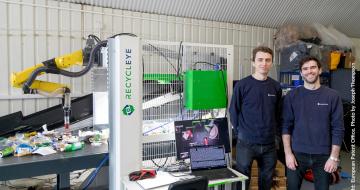Failure to comply with a specified time limit in proceedings before the Intellectual Property Office Belgium (hereinafter referred to as the IPObel) during the grant procedure, or after the patent has been granted, may result in a loss of rights attached to the patent application or granted patent. For example, it may be a deadline:
- to pay a fee (filing fee, search fee, annuities, etc.);
- a request for regularization of a patent application; or
- for filing a priority document or a missing part of the description of the invention.
However, for most time limits, there is a possibility to restore these rights, via a restoration procedure.
General restoration procedure
The general restoration procedure applies to all time limits for completing an action in proceedings before the IPObel, with a few exceptions (list of the time limits for which the restoration is not allowed (PDF, 1022.74 KB)). The relevant provision is found in the Code of Economic Law, Article XI.77. To obtain a restoration, certain conditions must be met.
- A request for restoration must be filed with the IPObel by the following deadline occurring first:
- either within two months of removal of the cause of non-compliance of the omitted act (for example: the person who has to complete the act is temporarily incapacitated, which prevents them from complying with the time limit: the two-month period commences as soon as they return to work and notice that the time limit has been exceeded);
- or twelve months after the expiry of the unobserved time limit.
Generally, the time limit will, therefore, be less than twelve months after the expiry of the missed deadline, but twelve months is in any case the maximum time limit. It is worth noting that, as regards for the payment of annuities, this period begins from the expiry of the grace period for the payment of these fees (period making it possible to still pay annuities with a surcharge).
- Within the same period, the requester must perform the omitted act. Usually, the omitted act is performed at the same time as the request for restoration.
- The request must indicate the reasons why the time limit was not met. A general explanation is insufficient: the explanation must be specific and clearly set out the facts at the time the act was not completed. Evidence supporting the reasons stated may be filed within two months of filing the request for restoration.
- The IPObel must be able to establish that the holder exercised all due care to meet the deadline. All due care is a standard taken from European patent law, among other things. It must be assessed on the basis of the circumstances as they existed before the expiry of the time limit. All due care required in this context must be understood as all appropriate care as would be taken under the circumstances by the average reasonably competent patentee or representative. During the examination of a request for restoration, the Intellectual Property Office verifies whether exceptional circumstances or an isolated mistake within a normally satisfactory monitoring system has occurred, which may lead to the restoration of rights.
The IPObel only processes the request for restoration after payment of the required fee. Both the request for restoration and the decision of the IPObel are recorded in the register. The application for restoration is then analysed and a decision is made. A request for restoration is, therefore, not automatically granted.
When the request for restoration of rights is granted, the patent is deemed to never have lapsed. In this case, any annuities that may have fallen due during the period beginning on the date on which the loss of rights occurred, and ending on the date including when the restoration decision is entered in the Register, must be paid within four months. However, provision is made for the protection of the rights of third parties who have used the invention during the period during which the patent was declared lapsed. This means that anyone who, between the time of the lapsing of rights and the time when the restoration of those rights takes effect, has used the invention covered by the patent in good faith in Belgium, or has taken the necessary measures to that end, may continue to use that invention for the needs of his own business. This right of use can only be transferred with the company to which it is attached.


